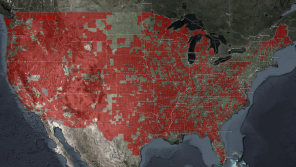Colorado Broadband Office publishes workforce plan

On Wednesday, the Colorado Broadband Office in partnership with the state’s Office of the Future Work shared their joint Broadband Workforce Plan, a roadmap to fill gaps in the state’s workforce leading up to the construction of new infrastructure for high-speed internet.
The plan comes ahead of the $826.5 million Colorado is expected to receive over the next five years from the Broadband Equity, Access and Deployment, or BEAD, program. Although the federal BEAD funds are expected to create thousands of jobs for Colorado residents, gaps such as labor and skill shortages could stand as barriers to deployment. The plan includes a strategy to expand workforce development programs, and organizes the broadband workforce into three main stages for broadband deployment: pre-construction, construction and post-construction maintenance.
According to a 2023 analysis from the NTIA, Colorado needed to fill several critical jobs in the state’s broadband workforce, including software engineers, trenchers, laborers, surveyors, electricians and technicians. In order to attract more skilled professionals, the state plans to run pilots, evaluate current telecommunication training, and job placement programs, according to the plan.
The plan follows the executive order Colorado Gov. Jared Polis issued in June 2022, which directed both offices to develop outlining strategies that use federal and state funding to meet the state’s goal of connecting 99% of households to high-speed internet by 2027.
According to the Colorado Broadband Map, which was created with data collected by the Colorado Broadband Office and the Federal Communications Commission, 90.2% of the state had access to high speed internet access at the end of 2022, leaving about 190,000 Colorado homes and businesses without consistent access.
Over the next five to seven years, Colorado state officials estimate BEAD will create more than 3,000 jobs through new infrastructure projects, with the highest demand for workers to be in 2026, when the program will need to fill nearly 2,000 construction jobs and 1,600 telecommunications jobs across the state.
“Colorado will compete with 49 other states to find and train a workforce to fill the jobs created by BEAD-funded projects,” Brandy Reitter, executive director of the Colorado Broadband Office, said in the announcement. “The Broadband Workforce Plan ensures Colorado is prepared to build a resilient workforce to complete infrastructure projects and maintain networks for years to come.”





